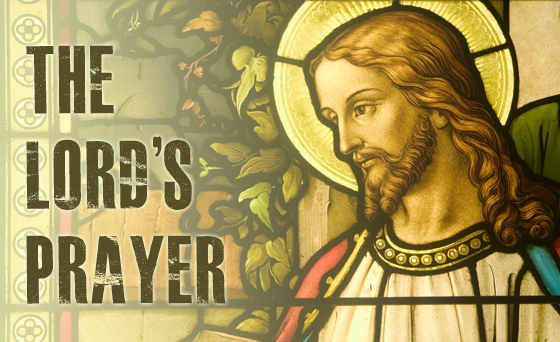VICAR
Rev. Joseph Esper
The Lord's Prayer
-
PDF Documents
-

AT THE MASSDuring the Communion Rite, the below takes place:
Priest: At the Savior’s command and formed by divine teaching, we dare to say:
All: Our Father who art in heaven,
hallowed be thy name;
Thy kingdom come; thy will be done
on earth as it is in heaven.
Give us this day our daily bread;
and forgive us our trespasses,
as we forgive those who trespass against us.
And lead us not into temptation
but deliver us from evil:
Priest: Deliver us, Lord, we pray, from every evil, graciously grant peace in our days, that, sustained by the help of your mercy, we may be always free from sin and safe from all distress, as we await the blessed hope, the coming of our Savior, Jesus Christ.
All: For the kingdom, the power, and the glory are yours, now and forever. Amen.
For a printer friendly version of this page, please click on the PDF document offered in the sidebar. For more information about- and a printer friendly document on- the Order of the Catholic Mass, please click HERE.
HOLY SCRIPTURE REFERENCES
Our Father in heaven,
hallowed be your name,
your kingdom come,
your will be done,
on earth as in heaven.
Give us today our daily bread;
and forgive us our debts,
as we forgive our debtors;
and do not subject us to the final test,
but deliver us from the evil one.
Father, hallowed be your name,
your kingdom come.
Give us each day our daily bread
and forgive us our sins
for we ourselves forgive
everyone in debt to us,
and do not subject us to the final test.
FAITH DOCTRINE REFERENCES
►CATECHISM OF THE CATHOLIC CHURCH, #2759- #2865
(#2759- #2761 appear below)
2759 Jesus "was praying at a certain place, and when he ceased, one of his disciples said to him, 'Lord, teach us to pray, as John taught his disciples.'"1 In response to this request the Lord entrusts to his disciples and to his Church the fundamental Christian prayer. St. Luke presents a brief text of five petitions,2 while St. Matthew gives a more developed version of seven petitions.3 The liturgical tradition of the Church has retained St. Matthew's text:
Our Father who art in heaven,
hallowed be thy name.
Thy kingdom come.
Thy will be done on earth, as it is in heaven.
Give us this day our daily bread,
and forgive us our trespasses,
as we forgive those who trespass against us,
and lead us not into temptation,
but deliver us from evil.
2760 Very early on, liturgical usage concluded the Lord's Prayer with a doxology. In the Didache, we find, "For yours are the power and the glory for ever."4 The Apostolic Constitutions add to the beginning: "the kingdom," and this is the formula retained to our day in ecumenical prayer.5 The Byzantine tradition adds after "the glory" the words "Father, Son, and Holy Spirit." The Roman Missal develops the last petition in the explicit perspective of "awaiting our blessed hope" and of the Second Coming of our Lord Jesus Christ.6 Then comes the assembly's acclamation or the repetition of the doxology from the Apostolic Constitutions.
2761 The Lord's Prayer "is truly the summary of the whole gospel."7 "Since the Lord . . . after handing over the practice of prayer, said elsewhere, 'Ask and you will receive,' and since everyone has petitions which are peculiar to his circumstances, the regular and appropriate prayer [the Lord's Prayer] is said first, as the foundation of further desires."8
1 Luke 11:1.
2 Cf. Luke 11:2-4.
3 Cf. Matthew 6:9-13.
4 Didache 8,2:SCh 248,174.
5 Apostolic Constitutions, 7,24,1:PG 1,1016.
6 Titus 2:13; cf. Roman Missal 22, Embolism after the Lord's Prayer.
7 Rom 8:27.
8 Cf. Didache 8,3:SCh 248,174.
RESOURCES
http://www.vatican.va/archive/ccc_css/archive/catechism/p4s2.htm
http://www.scborromeo.org/ccc.htm